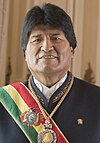Related Research Articles

Álvaro Marcelo García Linera is a Bolivian politician,sociologist,Marxist theoretician,and former guerilla who served as the 38th vice president of Bolivia from 2006 to 2019. A member of the Movement for Socialism,in the early 1990s he was a leader of the Túpac Katari Guerrilla Army.
The Bolivian Workers' Center is the chief trade union federation in Bolivia. It was founded in 1952 following the national revolution that brought the Revolutionary Nationalist Movement to power. The most important affiliate of the COB was the Union Federation of Bolivian Mine Workers (FSTMB). From 1952 to 1987,the COB was led by the legendary Juan Lechín,who was also head of the FSTMB. In its heyday it was arguably the strongest independent labour movement in the world.
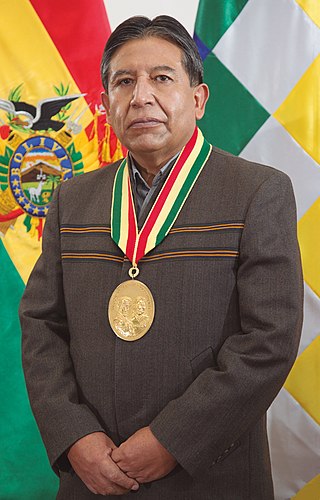
David Choquehuanca Céspedes is a Bolivian diplomat,peasant leader,politician,and trade unionist serving as the 39th vice president of Bolivia since 2020. A member of the Movement for Socialism,he previously served as minister of foreign affairs from 2006 to 2017 and as secretary general of ALBA from 2017 to 2019.
Casimira Rodríguez was the Bolivian Justice Minister from February 2006 until January 23,2007. She is a former leader in the Domestic Workers' Union,which she helped found. Rodríguez was Bolivia's first indigenous Quechua woman to serve as a government minister.

Mamerto Urriolagoitía Harriague was a Bolivian lawyer and politician who was the 43rd president of Bolivia,from 1949 to 1951. A member of the Republican Socialist Unity Party,he had previously been the 26th vice president of Bolivia,from 1947 to 1949,under President Enrique Hertzog. Urriolagoitía's short reign was characterized by the violent suppression of the opposition,especially unionists,and he is remembered for his inflexibility. He is considered the last constitutional president of the largely oligarchic social and political order that reigned in the country until the advent of the 1952 Bolivian National Revolution.
Benjamín Miguel Harb was a Bolivian politician and lawyer.

Félix Patzi Paco is a Bolivian academic and politician. He was the governor of the La Paz Department from 2015 to 2021. A member of the Aymara ethnic group,he has been active in supporting indigenous movements in Bolivia.
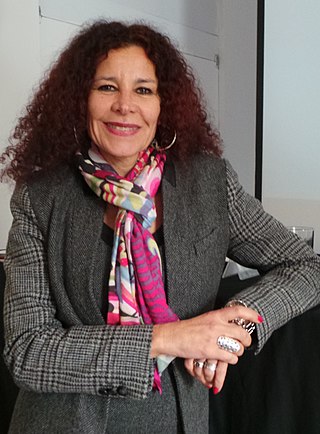
Elizabeth Cristina Salguero Carrillo is a Bolivian diplomat,journalist,politician,and women's rights activist who served as minister of cultures from 2011 to 2012. A member of the Movement for Socialism,she previously served as a party-list member of the Chamber of Deputies from La Paz from 2006 to 2009. In 2009,she was elected as a substitute party-list member of the Chamber of Deputies from La Paz but resigned before taking office in order to launch an ultimately unsuccessful La Paz mayoral campaign. From 2012 to 2015,she served as ambassador of Bolivia to Germany,and since then has worked as an international expert in strategic planning at UN Women.

The Ministry of Labor,Employment,and Social Security is a Bolivian government ministry which oversees labor relations,pensions and social security programs. Since 2 June 2011,it has been headed by Minister Daniel Santalla Torres,a politician and former factory union leader. He succeeded Félix Rojas in the position.

Roberto Ivan Aguilar Gómez is a Bolivian economist,former university official,politician,and former Minister of Education from 2008 until 2019,when Evo Morales resigned. Aguilar served as docent,general secretary,and rector in the Universidad Mayor de San Andres in La Paz. In 2006,he was elected as a plurinominal member of the Bolivian Constituent Assembly for the Movement for Socialism and served as its vice president. In November 2008,he was appointed by Evo Morales as Minister of Education,succeeding Magdalena Cajías.

Luis Alberto Arce Catacora,often referred to as Lucho,is a Bolivian banker,economist,and politician serving as the 67th president of Bolivia since 2020. A member of the Movement for Socialism,he previously served as minister of finance—
Mariana Prado Noya is a Bolivian business administrator and politician. She served as the Minister of Development Planning from 2017 to 2019,during the third government of Evo Morales.

Enrique Peñaranda assumed office as the 38th President of Bolivia on 15 April 1940,and his term was terminated by a coup d'état on 20 December 1943. A general in the Chaco War,Peñaranda was brought forth by the traditional conservative political parties,sidelined since the end of the Chaco War,as their candidate in the 1940 general elections.
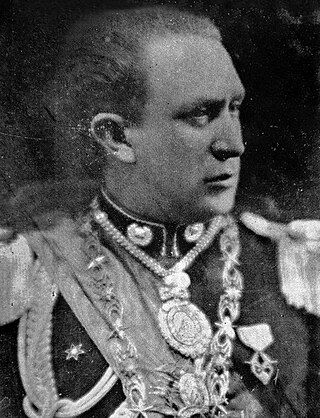
The Cabinet of David Toro constituted the 97th national cabinet of the Republic of Bolivia. It was a component of the Government Junta led by President David Toro and was in office from 17 May 1936 to 13 July 1937.

Luis Paz Arce was a Bolivian historian,journalist,jurist,lawyer,and politician who served on the Supreme Court of Justice of Bolivia for twenty-three years,an associate justice from 1905 to 1919 and as the president from 1919 until his death in 1928. A conservative,Paz held a lengthy political and academic background,serving in various legislative and ministerial positions from the early 1880s to the mid-1890s,including as minister of war from 1895 to 1896,minister of government from 1892 to 1895,and senator for Tarija from 1892 to 1898. In 1921,the National Convention selected him to be vice president under Bautista Saavedra,but he rejected the position,preferring to remain on the High Court.
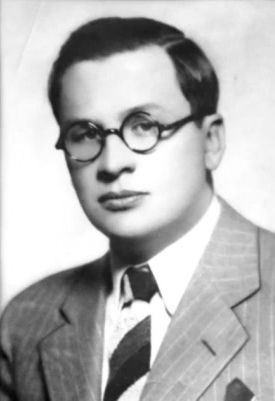
Carlos Montenegro Quiroga was a Bolivian lawyer,journalist,politician,and writer who served as minister of agriculture from 1943 to 1944. He was the principal political theorist of the Revolutionary Nationalist Movement,co-founding the party newspaper La Calle which laid the ideological bases of the party. His most famous work,Nacionalismo y coloniaje (1943),an essay on the influence of journalism in the history of Bolivia,is considered to be one of the most influential works in Bolivian historiography.
Events from the year 2022 in Bolivia.
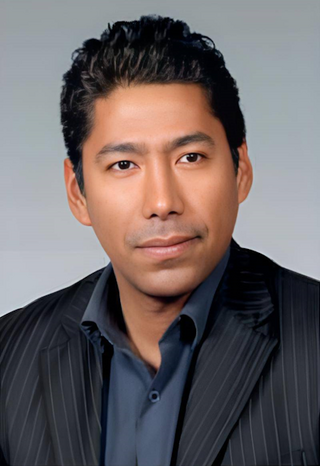
Carlos Aparicio Vedia is a Bolivian diplomat,lawyer,and politician serving as ambassador of Bolivia to Peru since 2021. Aparicio studied law at the University of San Francisco Xavier,during which time he became an adherent of Trotskyist political theory,leading him to join the emerging Movement for Socialism. He served as president of the party's departmental youth wing and participated in its successful 2005 general election campaign. In 2006,he obtained his first elective position,serving as a member of the Constituent Assembly from Chuquisaca,representing circumscription 5 from 2006 to 2007. Two years later,he was elected to represent the same constituency in the Chamber of Deputies,where he served from 2010 to 2015. Following the conclusion of his term,he served as vice minister of public security from 2015 to 2017 and ambassador to Italy from 2018 to 2019.
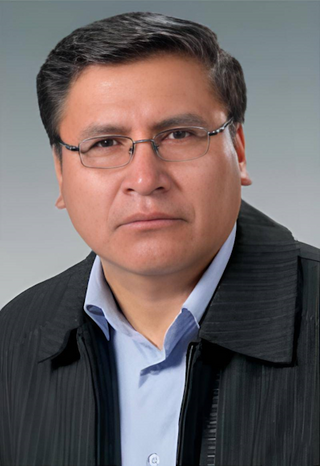
Roberto Rojas Herrera was a Bolivian accountant,politician,and trade unionist who served as a member of the Chamber of Deputies from La Paz,representing circumscription 15 from 2010 to 2015. A member of the Movement for Socialism,Rojas entered political activity as a member of El Alto's neighborhood councils,serving as secretary of sports for the city's San Pablo Zone before presiding over the District 3 council from 2000 to 2009. One rung above,he served as secretary of organization of the Federation of Neighborhood Councils from 2008 to 2010. The organization's alliance with the Movement for Socialism facilitated Rojas' entry into the Chamber of Deputies. Following his tenure in the legislature,he returned to El Alto,briefly serving as regional manager of the state-owned water and sanitation company before finally retiring from public life.
María Magdalena Cajías de la Vega is a Bolivian academic,historian,and politician who served as minister of education from 2007 to 2008. Cajías spent most of her professional career teaching history at the Higher University of San Andrés,in addition to holding a number of consultancy posts for intergovernmental organizations and government bodies. She authored multiple published historical titles,focusing on the fields of women's and labor history. In 2006,Cajías was brought on as a consultant for the Ministry of the Presidency before being appointed to head the Ministry of Education the following year. After a brief return to academia following the conclusion of her ministerial term,Cajías returned to public administration as consul general in Santiago,where she served from 2014 to 2019. In 2021,she was named as a member of the editorial board of the Bolivian Bicentennial Library.
References
- ↑ "Santalla impulsará aprobación de nueva Ley del Trabajo y Seguro Universal". Los Tiempos. 2011-06-02. Archived from the original on 2012-10-05. Retrieved 2011-06-03.
- 1 2 3 4 Salinas, J.C.; F. Rojas (2011-06-03). "Cambian al ministro de Trabajo por sospecha de varios delitos". El Deber. Archived from the original on 2011-06-08. Retrieved 2011-06-03.
